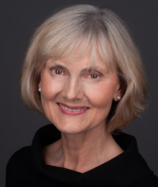Leaving Everything Most Loved: A Maisie Dobbs Novel
Review
Leaving Everything Most Loved: A Maisie Dobbs Novel
For a feminist, Maisie Dobbs is the ultimate detective. She isn’t deceptively cozy (think Miss Marple) or exaggeratedly macho. Nor is she a mere sidekick to a lordly sleuth, like Harriet Vane or Barbara Havers. Both psychologist and criminal investigator, Maisie is in the vanguard of women’s early-20th-century transition from conventional Edwardian wives to well-educated, independent professionals who vote, drive, and are in no haste to marry.
Beginning in 1929, with extensive flashbacks to Maisie’s early life and World War I experiences, Jacqueline Winspear’s series now takes us to 1933, an era in which another international conflagration threatens. In LEAVING EVERYTHING MOST LOVED (the title paraphrases a line from Dante’s Paradiso), Maisie comes to grips with two apparently unrelated cases: a murdered Indian woman, Usha Pramal, and a missing teenage boy.
From the first, it is clear, Maisie recognizes something of herself in the victim: Usha had a college degree and a rebellious streak; she sidestepped the customs of her native land by emigrating to London as governess to a family returning home to England. Maisie, born to humble parents, was raised up and educated by the wealthy Compton family, for whom she originally worked as a servant and whose scion, James, now wants to marry her. Both women have ventured beyond their traditional place in society in search of their true selves. Their outsider perspective has made them keen observers, but it may also put them in danger.
They are similar in another way. Maisie discovers that Usha seems to have had a powerfully charismatic presence, with her beauty, her vivid silk saris, and her extraordinary healing powers: Using what we would now call “alternative medicine” --- touch therapy, herbs, dietary advice --- she helped the sick and charmed all those who crossed her path. Except her murderer, that is.
Maisie, in turn, learned unorthodox methods of investigation from her mentors, the late detective/physician Dr. Maurice Blanche and Dr. Basil Khan, a blind yogic sage from Ceylon. Thus, she solves mysteries not just with her rational mind but also with a deep grasp of emotional texture and connection (“Trust coincidence,” Blanche told her), and she meditates in order to focus her thoughts and relieve worry or doubt. Both Maisie and Usha, in other words, dare to draw on less conventional sources of enlightenment.
"[T]he series is a class act (even the cover designs, in the style of poster art of the period, are marvelous).... Like its nine predecessors, LEAVING EVERYTHING MOST LOVED is consistently intelligent and complex..."
Conveniently, Dr. Blanche also left Maisie a fortune, so she is now a woman of means quite apart from what she earns from her business as a private investigator. In her New Age-y sensibility, her entrepreneurial vigor, her willingness to cohabit outside of marriage, even her choice of a sporty little MG, Maisie is eminently recognizable to our era --- and hardly typical of her own. Okay, she is a pioneer and (I hate the term) role model, but still, she sometimes seems a little too modern, in my opinion, and dangerously perfect. Couldn’t she be in love with a chauvinist? Couldn’t she have unprogressive opinions (even Eleanor Roosevelt did in the 1930s)? Couldn’t she dress without style, or eat too much?
At times, too, Winspear is guilty of letting her research show, particularly when she is describing the fashions of the day or dwelling on the design and provenance of a tube station. (If you’ve ever seen a movie in which close-ups of the décor and costumes outshine the drama, you’ll know what I mean.)
These quibbles aside, the series is a class act (even the cover designs, in the style of poster art of the period, are marvelous). Jacqueline Winspear based Maisie’s story in part on her own family history, and she gives the reader a real and passionate sense of just how profoundly the First World War altered individuals --- indeed, a whole society. Maisie is scarred body and soul by her years as a battlefield nurse: “Perhaps more than anything else,” she muses, “going to war had changed her life.”
Like its nine predecessors, LEAVING EVERYTHING MOST LOVED is consistently intelligent and complex, though I must confess that I was less interested in the whodunit aspect and more in Maisie herself and her appealing associates, especially the war-damaged Cockney, Billy Beale, and Sandra Tapley, an observant and efficient widow with a thirst for higher education. Of course, there is a crusty Scotland Yard inspector as well, practically a requirement in a novel of this sort!
In the end, Maisie uncovers the true story behind the murder, survives a gripping confrontation with the killer --- the hero of the day is a Golden Retriever --- and makes the decision that has been looming over the entire book. In the next installment, she is bound to find herself in new territory, be it emotional, geographical…or both. I’ll definitely be going along for the ride.
Reviewed by Kathy Weissman on March 29, 2013
Leaving Everything Most Loved: A Maisie Dobbs Novel
- Publication Date: April 8, 2014
- Genres: Fiction, Historical Fiction, Historical Mystery, Mystery
- Paperback: 368 pages
- Publisher: Harper Perennial
- ISBN-10: 0062049615
- ISBN-13: 9780062049612




